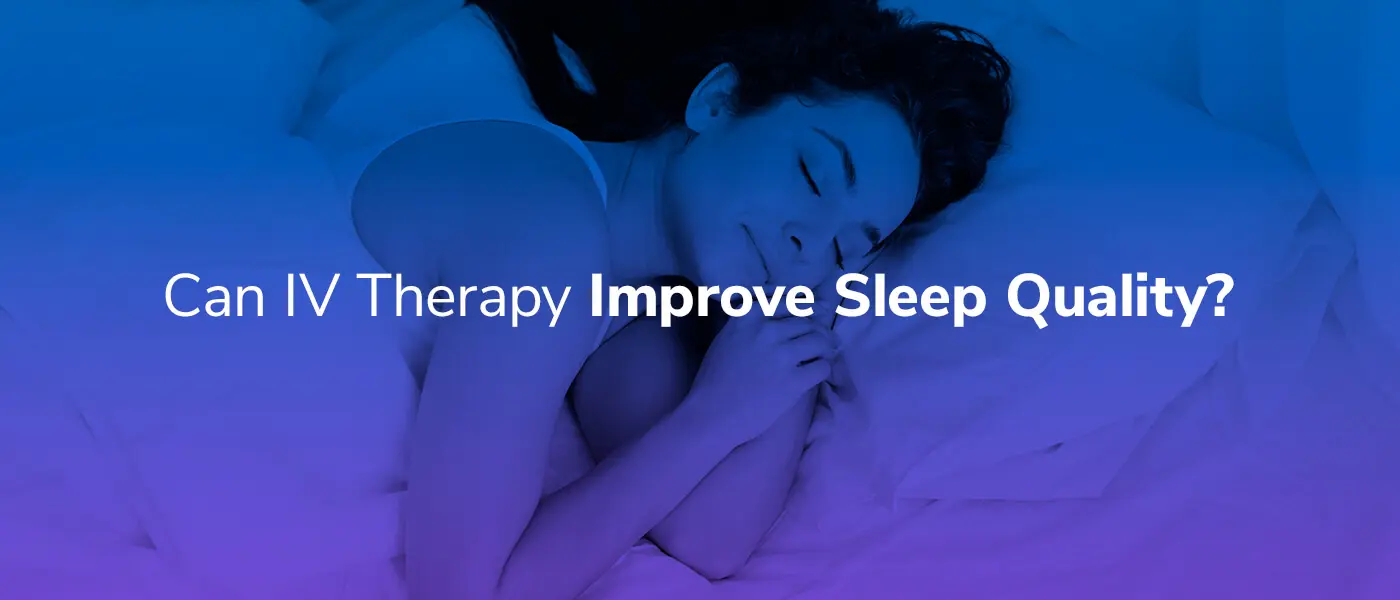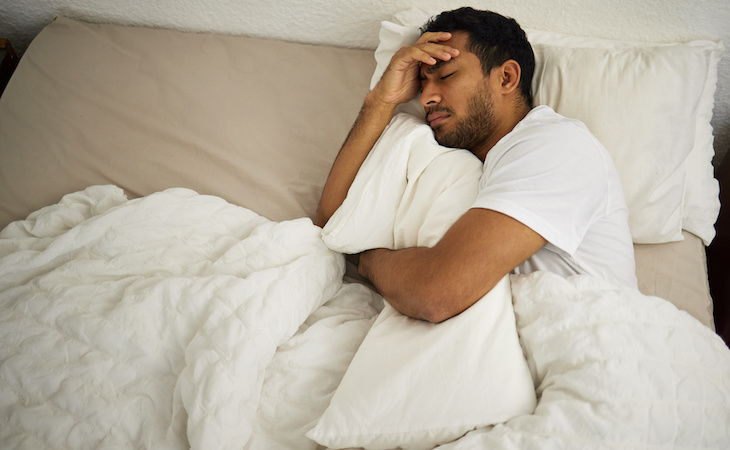Comprehensive Sleep Disorder Treatment - Locate the Best Solutions
Comprehensive Sleep Disorder Treatment - Locate the Best Solutions
Blog Article
Reliable Treatment Solutions for Managing Sleep Disorders and Enhancing Relaxing Rest
In the world of medical care, the monitoring of sleep problems and the quest for relaxing rest are pivotal parts of general wellness. As we browse the detailed landscape of sleep conditions and look for to improve our sleep experience, a much deeper understanding of these therapy options may hold the trick to opening a more relaxing and satisfying restorative trip.
Cognitive Behavior Modification for Sleeping Disorders (CBT-I)
Cognitive Behavior Modification for Insomnia (CBT-I) is a structured, evidence-based treatment technique that concentrates on resolving the underlying aspects adding to sleep disruptions. This kind of treatment aims to customize habits and thoughts that exacerbate sleep problems, inevitably advertising healthy and balanced rest patterns. CBT-I generally entails numerous crucial parts, consisting of cognitive therapy, sleep limitation, stimulus control, and sleep hygiene education and learning.
Cognitive therapy assists individuals determine and transform adverse idea patterns and beliefs concerning rest that might be preventing their capacity to drop or stay asleep. Sleep restriction includes limiting the quantity of time invested in bed to match the individual's real sleep period, therefore raising sleep effectiveness (sleep disorder treatment). Stimulation control methods aid develop a solid organization between the bed and sleep by encouraging individuals to visit bed only when drowsy and to stay clear of participating in promoting tasks in bed
Additionally, rest hygiene education and learning concentrates on creating healthy sleep habits, such as maintaining a constant sleep timetable, creating a relaxing going to bed regimen, and optimizing the rest setting. By attending to these elements comprehensively, CBT-I offers a reliable non-pharmacological treatment for taking care of sleep problems and boosting total rest top quality.
Sleep Health Practices
Having established the structure of cognitive restructuring and behavioral modifications in resolving insomnia via Cognitive Behavior modification for Sleep Problems (CBT-I), the focus currently moves towards exploring essential Sleep Health Practices for keeping ideal rest quality and general well-being.
Rest hygiene practices include a variety of practices and environmental factors that can significantly influence one's ability to sleep and stay asleep throughout the night. Constant rest and wake times, developing a relaxing bedtime routine, and enhancing the rest setting by keeping it dark, silent, and cool are important components of excellent rest health. Restricting direct exposure to screens before bedtime, avoiding stimulants like high levels of caffeine near going to bed, and taking part in regular exercise throughout the day can also advertise better rest top quality.
Additionally, practicing leisure methods such as deep breathing workouts or meditation prior to bed can assist soothe the mind and prepare the body for sleep. By including these rest health practices right into one's everyday routine, individuals can develop a healthy rest pattern that supports relaxed sleep and overall health.
Leisure Techniques and Mindfulness
Executing relaxation strategies and mindfulness techniques can play a critical duty in promoting a sense of calm and advertising quality rest. sleep disorder treatment. These strategies aim to silent the mind, lower tension, and develop an ideal setting for relaxing rest. One widely practiced approach is deep breathing exercises, where people focus on slow, deep breaths to relax the mind and body. Dynamic muscle mass relaxation involves tensing and after that launching each muscle group, advertising physical relaxation. Furthermore, led images can aid transfer people to a calm location in their minds, assisting in stress decrease and improving sleep high quality.
By integrating these practices into a going to bed regimen, people can signal to their bodies that it is time to take a break and prepare for sleep. In general, incorporating leisure techniques and mindfulness practices can significantly add to handling sleep disorders and enhancing total sleep high quality.

Medication Options for Sleep Disorders
After exploring leisure strategies and mindfulness practices as non-pharmacological interventions for boosting sleep high quality, it is crucial to consider medication choices for people with sleep conditions. In situations where lifestyle adjustments and treatment do not give enough alleviation, medication can be an important tool in taking care of sleep disturbances.
Typically recommended medications for rest problems consist of benzodiazepines, non-benzodiazepine hypnotics, antidepressants, and melatonin receptor agonists. Benzodiazepines, such as diazepam, are sedatives that can aid cause sleep, but they are usually advised for short-term usage because of the danger of dependence. Non-benzodiazepine hypnotics like zolpidem are likewise made use of to deal with sleep problems and have a lower risk of dependence contrasted to benzodiazepines. Antidepressants, such as trazodone, can be valuable for people with co-occurring depression and rest disruptions. Melatonin receptor agonists, like ramelteon, target the body's all-natural sleep-wake cycle and can be valuable for controling rest patterns.
It is crucial for people to consult with a doctor to identify the most appropriate medicine alternative based upon their specific sleep problem and case history.
Light Treatment for Circadian Rhythm Guideline
Light therapy, also referred to as central apnea while awake phototherapy, is a non-invasive therapy method made use of to control body clocks and improve sleep-wake cycles. This therapy involves direct exposure to intense light that imitates all-natural sunlight, which aids to reset the body's internal clock. By subjecting people to certain wavelengths of light, normally in the morning or evening depending upon the desired impact, light treatment can properly change the body clock to advertise wakefulness ptsd and sleep apnea during the day and improve restful sleep during the night.
Research study has revealed that light treatment can be particularly valuable for individuals with body clock problems, such as delayed sleep stage syndrome or jet lag. It can also be practical for those experiencing seasonal affective disorder (SAD), a sort of depression that usually happens throughout the winter months when natural light exposure is minimized. Light therapy is usually well-tolerated and can be used in conjunction with other treatment techniques for rest problems to maximize results and boost overall rest quality.
Final Thought
To conclude, reliable treatment services for managing rest problems and improving relaxed rest include Cognitive Behavior modification for Sleep Problems (CBT-I), sleep hygiene practices, leisure strategies and mindfulness, medication options, and light treatment for body clock policy. These methods can help people boost their rest top quality and general well-being. It is essential to seek advice from a healthcare service provider to identify one of the most suitable technique for attending to rest problems.
As we browse the elaborate landscape of sleep problems and seek to boost our sleep experience, a much deeper understanding of these treatment services might hold the trick to unlocking an sleep disorders in adults extra refreshing and meeting corrective journey.
Rest restriction includes limiting the quantity of time spent in bed to match the person's actual rest period, consequently boosting rest performance. Constant rest and wake times, creating a relaxing bedtime routine, and enhancing the rest environment by keeping it dark, silent, and cool are vital components of great sleep health. Light treatment is generally well-tolerated and can be utilized in combination with other therapy approaches for sleep problems to maximize end results and improve general rest quality.

Report this page